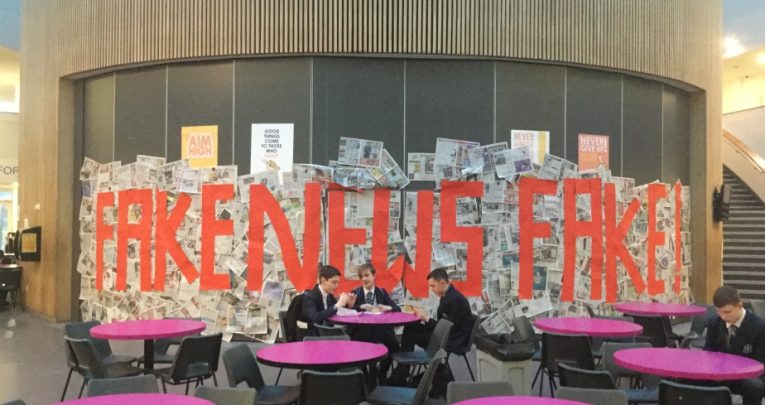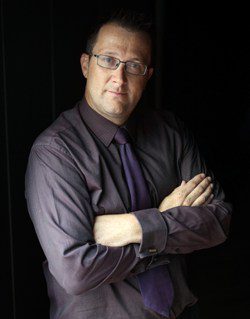Vic Goddard – “What chance have our young people got of spotting online lies?”

It’s important to not believe everything you read on social media, because lies have a tendency to travel much faster than the truth…

- by Vic Goddard

I suspect that every secondary school in the country has had some kind of conversation with their students about social media and its pitfalls.
Some schools, as we know, ban all mobile phones in school, with the distractions presented by social media often cited as one of the biggest reasons. However, I feel that the threat to our young people isn’t just social media; it’s the media more generally.
I’m sure it won’t have escaped your notice that some of the things we see and hear referred to as ‘news’ should actually be called ‘lies’.
Let’s be honest – when the phrase ‘fake news’ was used by the Trump administration, there were a few of us thinking ‘Only in America could a political leader get away with that…’ Now, obviously, we’re fully aware that our American cousins are far from alone in having to get used to it.
We’ve seen MP after MP answer the question in their head, rather than the questions put to them when asked about school funding – ‘record levels’, rather than ‘real-term cuts’ and so on. Some media outlets have responded with ‘fact checking’ things said by people who should be well above that necessity.
The problem we have is that the checked facts never make the headlines after the initial ‘alternative truth’ already has, with the result that the latter’s impact on the general public stays, whether it was true or not.
Healthy questioning
So what can we do to ensure our young people develop a healthy level of questioning with respect to what appears to be news? Some of you will have kindly responded to the tweet below:
Hard to know how to respond to a member of staff that calls to tell you they’ve won 7 figures on the lottery! pic.twitter.com/lhdMYYxSDM
— Vic Goddard (@vicgoddard) January 29, 2020
That was a tweet I sent at the request of our fantastic head of English, Maria, who is organising a series of days designed to provide some balance in an increasingly divided world – one of which saw us spend a day focusing on the facts around immigration.
Maria had asked me to put a tweet out 12 hours before the start of the school day that would create some sort of reaction, in order to see how far it would spread. The only issue was that the tweet needed to be untrue. It took me a while to think of something I could tweet that wasn’t going to get me in trouble!
Within three minutes of sending the tweet above, it had been retweeted in Edinburgh and Glasgow. By 9am the next morning it had chalked up over 100,000 impressions and been retweeted by people in five continents.
What I didn’t expect was the credulous response from Passmores staff – staff who knew that ‘fake news’ would be a big focus of discussion the following day. I received text messages and invites to numerous WhatsApp groups, which made me think – what chance have our young people got of spotting lies spread online?
How savvy are our digital natives?
On entering school that day, our community was greeted by the biggest sign we could create on the hall doors with the words ‘FAKE NEWS’ against a background of newspapers.
The students and some members of staff spent the day learning the truth behind the scaling of maps in geography; how propaganda has been used throughout history; diet myths; manipulation of statistics; and the role of CGI in the creation of fake news.
Media bias was debated, leading to extended pieces of writing being produced on the topic.
I think it’s vital that we teach our young people to not unquestioningly accept things they read from any source, even those seen as being ‘reputable’, and teach them how to check their own facts.
We’ve used the phrase ‘digital natives’ in the last few years to describe how much more comfortable our young people are with online technologies, but I think we’ve given them far too much credit.
Are they phased by using it? No. Do they have the requisite skills and knowledge to understand how manipulative it can be? As a dad to a teenager, I’d say a resounding NO! After all, if they can’t trust their headteachers to tell the truth…
Vic Goddard is head Teacher at Passmores Academy – as seen on Channel 4’s Educating Essex – and is the author of The Best Job in the World (Independent Thinking Press, £14.99).











